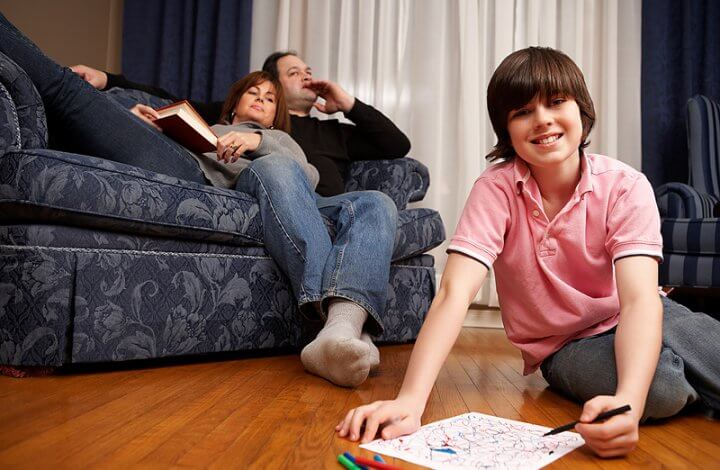
Some parents choose to parent one way, others another. An uninvolved parenting style is one choice for parenting that often results in poor performance from children in school, social situations, and with self-esteem. It is the easiest approach to take, and the worst. Let’s take a look at what it means to be someone who practices an uninvolved parenting style, and what you can do to change that so your child can become a well-rounded, well-adjusted adult.
First, let’s look at what it means to be an uninvolved parent. Uninvolved parents do not put demands on their children, and they are not responsive to their children. What does this mean? Well, because there are many degrees of uninvolved parenting, the best way to understand it is to look at some of the basic characteristics this parenting style expresses:
- The parent feels that he has no right to limit a child’s behavior. The degree of their uninvolved parenting will determine how much, if at all, they limit the behavior. For example, some parents allow just about anything, but draw the line at the child stealing out of their wallet, or being promiscuous in their home.
- They are low in their responsiveness or demands. If the parent has no real concern for the child, these low levels pretty much disappear. It is more like roommates who do not like each other, or at least do not care, living in the same house.
- They show little commitment to providing care for their child. These are parents that do not go to parent teacher conferences, do not sign their children up for extra-curricular activities, etc.
- They can sometimes be rejecting. Neglect and rejection often go hand in hand. Sometimes parents who choose this parenting style do not just give their child free reign, but reject any attempts the child makes to be the child, and allow them to be the parent.
- Parents who resort to this style are often emotionally detached, depressed, or are overwhelmed sometimes because of their own problems. For example, a parent going through a messy divorce may neglect their child. A parent who works full time in a high stress job may choose this parenting style simply because it is easier than dealing with children after a long day of work.
- They provide the bare essentials. This means the kid has clothes, food, shelter, but other than that mom and dad are uninvolved.
Children and adolescents whose parents are uninvolved perform most poorly in all areas. For example, research has shown that they have a harder time forming attachments to people, often struggle with comprehension in reading, cognition, handling emotions, and social skills. They are more likely to be aggressive and exhibit problem behavior. In addition, children brought up this way often struggle with substance abuse, and other similar problems.
If you want to help your child be a better person, this is not the ideal choice of parenting styles. In fact, in most cases parents only exhibit this style if they are unaware of it because they are so busy, they are struggling with personal issues, such as drug abuse, or they did not want children in the first place and really just do not care. If you feel you may be leaning toward this style of parenting due to circumstances, such as having to work long hours just to pay the bills, it is time to make a change. There is little good that comes from this parenting style. So, ask for help, and find ways to become more involved in your child’s life. Your role as a parent is more than just providing the necessities, children need more.